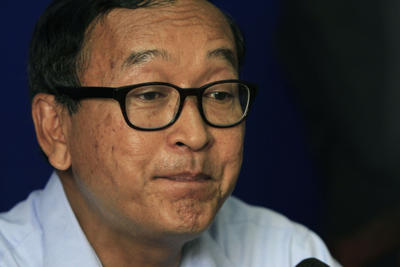Three interrelated factors help to explain the political dynamics of the election: the country’s demographics; the prevalence of communications technology; and the shortcomings of the serving prime minister, Hun Sen, and his ruling Cambodian People’s Party (CPP).
About 3.5 million of Cambodia’s 9.6 million registered voters are between the ages of 18 and 30; and of those, around 1.5 million are first-time voters. The majority of these young voters look beyond the country’s tragic past and are demanding concrete political and economic reforms, more freedom of expression, justice, inclusiveness, and good governance. Their aspirations are higher than their parents’ generation. Thanks to the rapid development of communications technology, especially through social media and smart phones, young voters can also receive updated information and actively exchange their views online.
Such a widespread proliferation of social media has broken down the effectiveness of state media control and propaganda in shaping public opinion on national issues. Although the CPP has been reasonably successful in maintaining peace and stability, economic growth, and infrastructure development, there are still serious shortcomings that are now more widely acknowledged. Public institutions have not satisfactorily responded to the needs and demands of the people. Systematic and chronic corruption, social injustice, land disputes and forced eviction, human rights violations, deforestation, national resource depletion, lack of transparency and accountability, and widening development gaps are among the key issues facing Cambodian society. Increasing numbers of voters have expressed their dissatisfaction with the ruling CPP by voting for the Cambodia National Rescue Party (CNRP). The CNRP focused its campaign on “change”, serious reforms of national institutions in order to have better checks and balances, improving the wellbeing of the people, especially those working in public institutions, factory workers, farmers and the elderly.
The official results of the election, released by the National Election Committee (NEC), show that the CPP won 68 seats and the CNRP won 55, out of the 123 seats in the National Assembly. However, the CNRP has rejected the results and claims to have won 63 seats. It has called for the creation of an independent committee to investigate alleged election fraud. The CNRP has stated that ‘fifteen per cent of voters — about 1.2 to 1.3 million — were unable to vote because of list irregularities. There were also about 1 million ghost names on the voter list and about 200,000 duplicate names … That’s why we require the technical working group comprising the CNRP, the CPP, the UN, the NEC, local and international NGOs to investigate and make a report about these irregularities’.
However, the CPP has not accepted the proposal and has argued that all political parties must respect the official results issued by the NEC. After the failure of two rounds of negotiations between the two parties, the CPP went ahead to convene the opening of the National Assembly on 23 September — in line with the national constitution, which states that the first national assembly meeting shall be convened within 60 days of the election. The meeting was endorsed by the king, regardless of objections from civil society groups and the CNRP’s boycott.
The national assembly, with only the 68 CPP members sitting, voted to renew the prime minister’s five-year term. The first cabinet meeting was held on 25 September, with a promise to deepen reforms. Judicial reform, good governance, anti-corruption, and land and forest management are the top priorities for the next five-year reform program. Yet the opposition CNRP has denounced the creation of the new government, saying it was established by a ‘constitutional coup’. It continues to call for more protests and international pressure on the government. The United States and the European Union have both demanded a transparent review of election irregularities and reform of the electoral administration. Japan and Australia have also announced similar positions. But Hun Sen is standing firm.
China is among the few countries that congratulated the victory of the CPP. During a bilateral meeting between Premier Hun Sen and Premier Li Keqiang in Nanning on 2 September, Li confirmed Chinese support for Hun Sen. And in his visit to Cambodia on 21 August, Chinese foreign minister Wang Yi stated: ‘We will support Cambodia ruling out external interference to pursue a development path in line with its own national conditions and the interest of the people’.
Thus, the future for Cambodian politics looks grim and highly uncertain. There is a serious lack of trust and confidence between the two political parties, and it will be difficult for both to return to negotiations and find a political breakthrough until there is a serious compromise from both sides. If a sustainable power-sharing arrangement cannot be found, the country could fall into a short-term political crisis. The implications of this would be a serious setback in the country’s economic development and poverty-reduction efforts — two areas that Cambodia has been struggling to improve over the years. In addition, it could also create space for more strategic and political competition among major powers in the region.
Vannarith Chheang is a senior fellow at the Cambodian Institute for Cooperation and Peace.

